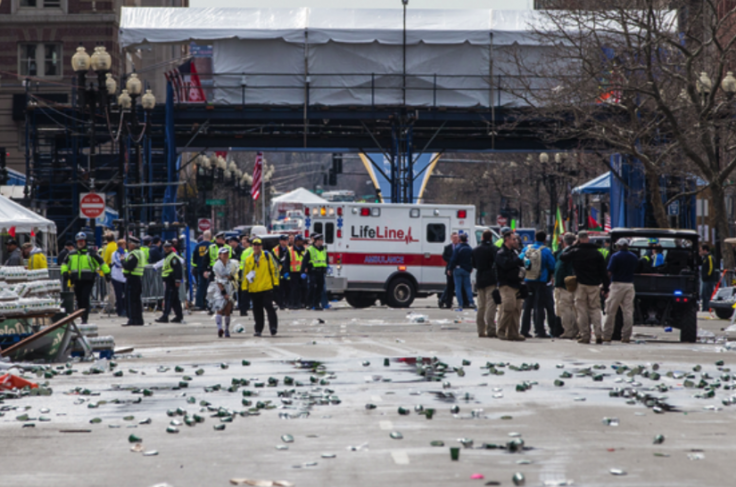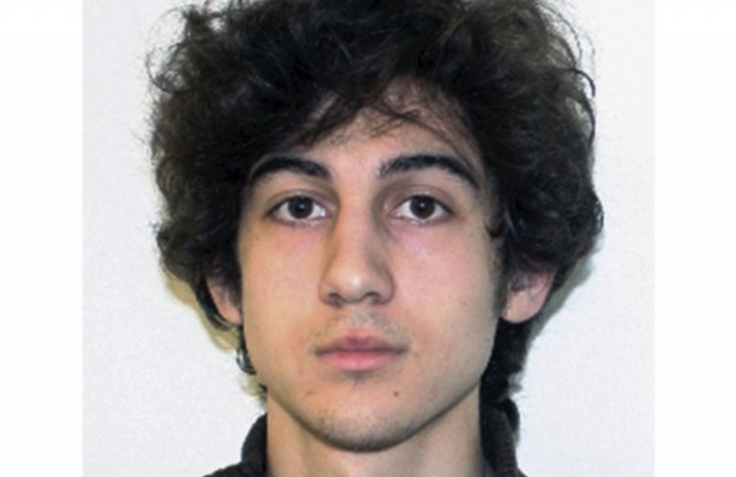A federal appeals court on Friday overturned Boston Marathon bomber Dzhokhar Tsarnaev's death sentence for helping carry out the 2013 terrorist attack, which killed three people and wounded more than 260 others.
The court ruled that Tsarnaev, 27, should be given a new trial for the penalty phase, where a new set of jurors will decide whether or not he should be sentenced to death.
Boston Marathon Bombing

Tsarnaev and his older brother Tamerlan set off a pair of homemade pressure-cooker bombs near the finish line of the world-renowned annual race, tearing through the packed crowd.
Tsarnaev was 19 years old when he and Tamerlan, who was 26 years old at the time, went to Boston's Boylston Street shortly before 3 p.m. on April 15, 2013, to carry out the attack. Surveillance video showed the brothers carrying the pressure cooker bombs in backpacks and moving through the crowd near the marathon finish line in what federal prosecutors called a co-ordinated attack.
Tamerlan set off the first bomb, a 6-quart pressure cooker that contained gunpowder, nails and BBs, prosecutors said. The bomb killed Campbell, a 29-year-old restaurant manager, and permanently injured several other people who lost their legs.
The second pressure cooker bomb, carried by Dzhokhar, went off 12 seconds later and killed two people, Martin and Lu, a graduate student from China. The bombings sparked a manhunt for days that shut down the city and resulted in wall-to-wall coverage of the search.
The brothers, while on the run, killed Massachusetts Institute of Technology police officer Sean Collier. After they stole an SUV, the two were chased by police. Tamerlan died in an explosive shootout with police in nearby Watertown. Dzhokhar was arrested a day later.
Tsarnaev to Remain in Prison for Life
Tsarnaev received the death sentence in 2015 after being found guilty of 30 counts connected to the April 2013 bombing. The appeals court also ruled to set aside three of his 30 convictions but said he will remain in federal prison for the rest of his life.
"But make no mistake: Dzhokhar will spend his remaining days locked up in prison, with the only matter remaining being whether he will die by execution," the three-judge panel said, more than six months after arguments were heard in the case.
Lawyers Argued Jurors Were 'Biased'

In December 2019, Tsarnaev's lawyers argued in front of the 1st Circuit Court of Appeals in Boston that the death penalty ruling should be thrown out because their client did not receive a fair trial. They said the trial should have been held outside of Boston, instead of it being held in the heart of a town so affected by the tragedy.
The lawyers also drew the judge's attention to social media posts shared by two of the jurors and claimed they harbored strong opinions against Tsarnaev even before the trial started in 2015 and the posts rendered the jurors incapable of making unbiased decisions.
Jurors' Social Media Posts
As part of their arguments, the lawyers said one of the jurors referred to Tsarnaev on Twitter as "a piece of garbage" and that she was "locked down" with her family during the manhunt. She allegedly also failed to disclose the 22 other tweets in which she mourned the victims and heaped praise on police officers.
On the day of Tsarnaev's sentencing, the juror changed her Facebook profile picture to an image that said "BOSTON STRONG," a rallying cry used in the wake of the bombing, the attorneys said.
The court documents also revealed a second juror exchanged messages on Facebook about the jury selection process. In one exchange, a friend encouraged him to "get on the jury," and "send" Tsarnaev "to jail where he will be taken care of."
Trial Judge 'Fell Short' in Jury Selection, Said Appeals Judge
The appeal judges devoted a significant number of questions to the juror bias argument. They asked why the two jurors had not been dismissed, or at least why the trial judge had not asked them follow-up questions after the posts came to light on the eve of the trial.
U.S. Circuit Judge O. Rogeriee Thompson, one of the judges on the panel that vacated Tsarnaev's death sentence said the trial judge "fell short" in conducting the jury selection process and screening jurors for potential bias following pretrial publicity surrounding the high-profile case.









